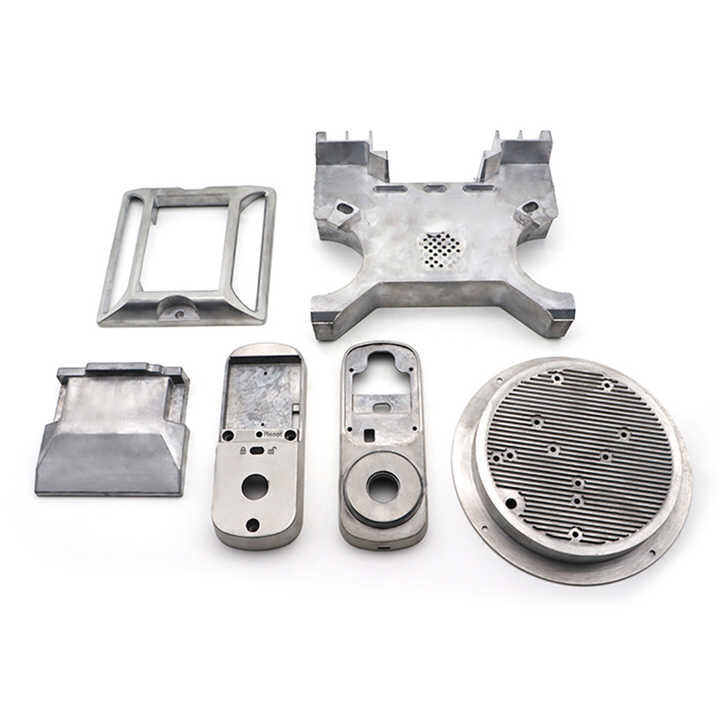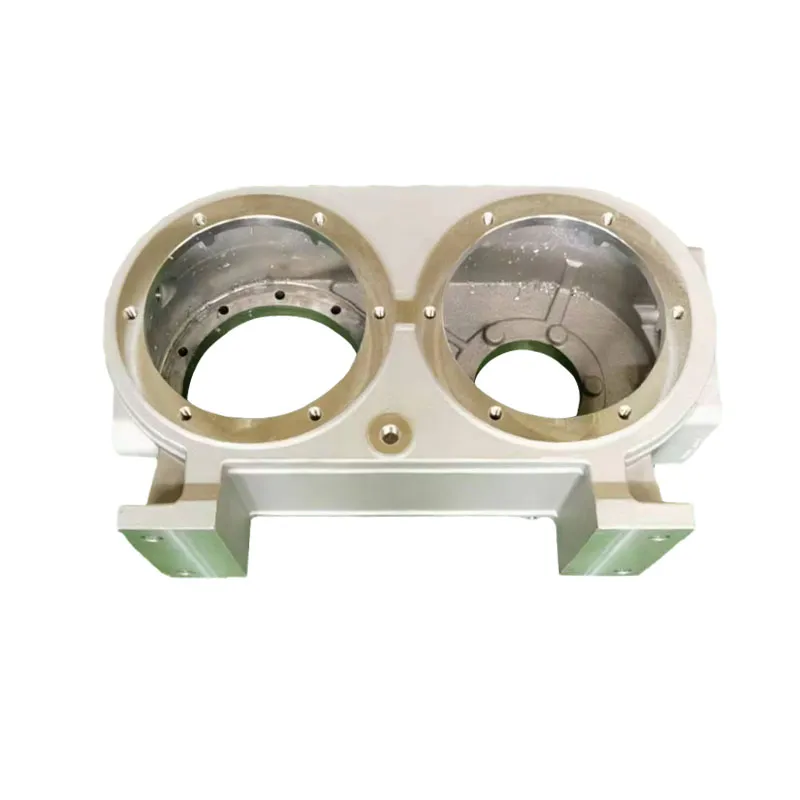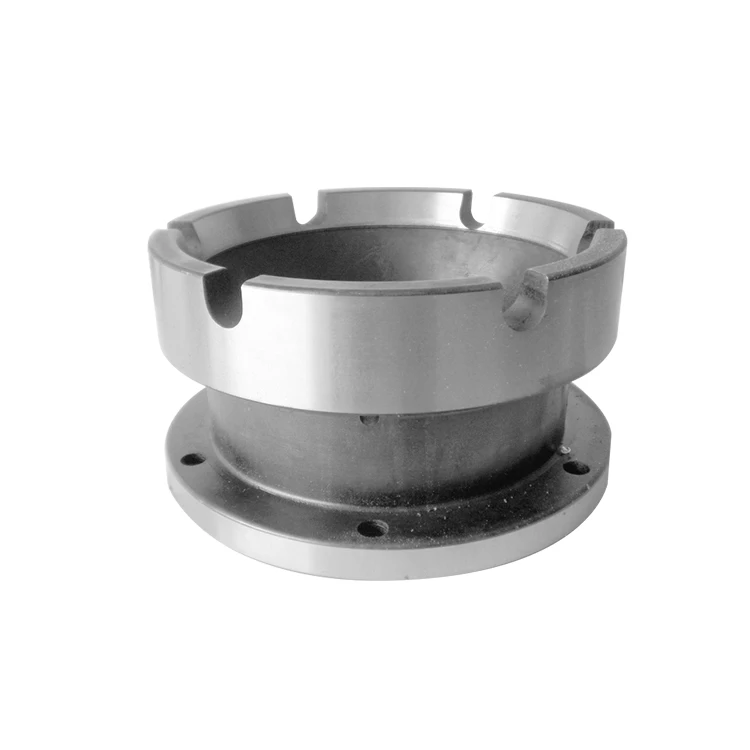Discover how modern Precision aluminum casting enhances product performance
Wiki Article
Discovering the Cutting-edge Procedures Behind Modern Light Weight Aluminum Factory Workflow
Modern aluminum factory operations are undertaking considerable change. Automation and AI are reshaping production approaches, enhancing both effectiveness and accuracy. The assimilation of 3D printing is enhancing mold and mildew development, while sustainability techniques are becoming a lot more vital. Each of these advancements plays an essential role in redefining the sector. The effects of these changes expand beyond plain production effectiveness. What opportunities and obstacles exist ahead for light weight aluminum factories in this progressing landscape?The Function of Automation in Aluminum Foundries

Automation contributes to enhanced safety criteria within the shop atmosphere. By moving harmful jobs to equipments, human employees can concentrate on managerial duties and quality control, reducing the risk of accidents. In enhancement, data analytics acquired from automated procedures supply beneficial understandings right into functional performance, causing far better decision-making and constant improvement. As the demand for light weight aluminum products grows, the fostering of automation technologies will likely broaden, further transforming the landscape of aluminum factory operations.
Innovations in Spreading Technologies
Recent improvements in casting technologies are transforming aluminum shop operations. Advancements such as 3D printing combination, progressed alloy formulations, and automated process optimization are enhancing performance and item top quality. These advancements are pivotal in fulfilling the advancing demands of the industry.3D Printing Integration
Incorporating 3D printing technology into light weight aluminum foundry procedures has actually changed conventional spreading methods, improving both performance and accuracy. This cutting-edge technique enables the rapid manufacturing of complicated mold and mildews and cores, significantly reducing lead times and product waste. By utilizing additive production, factories can develop intricate geometries that were difficult or previously difficult to achieve with standard methods. The adaptability of 3D printing likewise makes it possible for quick style adjustments, cultivating a much more agile production procedure. In addition, this integration sustains making use of light-weight frameworks, which is significantly essential in markets such as automobile and aerospace. As light weight aluminum shops proceed to take on 3D printing, they place themselves at the center of technical development, driving renovations in item high quality and operational capabilities.Advanced Alloy Formulations
The advancement of sophisticated alloy formulations has actually significantly boosted casting innovations in aluminum shop operations. These formulations integrate different aspects, such as silicon, copper, and magnesium, to improve mechanical residential properties and thermal resistance. By customizing the structure of light weight aluminum alloys, producers can attain details performance qualities that fulfill the needs of diverse applications, from vehicle elements to aerospace frameworks. Making use of advanced alloys likewise adds to decreased weight and boosted strength, which are crucial consider contemporary engineering. Additionally, developments in alloy growth allow far better fluidity throughout casting, resulting in enhanced surface area finishes and reduced issues. Generally, advanced alloy solutions stand for a substantial jump ahead, placing aluminum factories to satisfy the advancing demands of various sectors efficiently.Automated Process Optimization
Improvements in casting modern technologies have actually led the way for automated procedure enhancement in aluminum shop procedures. By incorporating innovative software program and real-time information analytics, shops can currently streamline manufacturing procedures and enhance top quality control. Automated systems keep track of variables such as stress, temperature, and air conditioning rates, permitting immediate changes that lessen problems and waste. Additionally, artificial intelligence algorithms assess historical performance data to forecast perfect settings, thus increasing efficiency and decreasing cycle times. Robotics likewise play a significant function, handling repetitive tasks that boost safety and accuracy. Overall, these innovations not only drive operational performance yet also enable shops to satisfy the expanding need for premium aluminum components in numerous sectors.Smart Manufacturing and Industry 4.0 Assimilation
The assimilation of Smart Manufacturing and Market 4.0 within aluminum foundries is changing operational effectiveness. By leveraging IoT innovations, automation, and robotics, foundries can maximize manufacturing procedures and reduce downtime. Furthermore, information analytics supplies vital insights that boost decision-making and drive continual enhancement.IoT in Foundry Workflow
As makers increasingly welcome the Web of Points (IoT), factory procedures are experiencing a transformative change towards wise manufacturing and Industry 4.0 assimilation. Aluminum Casting Company. IoT technologies make it possible for real-time data collection and analysis, enhancing decision-making procedures and functional performance. Sensors and linked gadgets monitor devices efficiency, product usage, and environmental conditions, enabling for aggressive maintenance and source optimization. This connection fosters a more active production setting, where changes can be made promptly in response to market needs. In addition, IoT helps with improved traceability and top quality control, as data from the entire manufacturing cycle can be quickly accessed and analyzed. Generally, the combination of IoT in factory operations significantly improves efficiency and drives technology in light weight aluminum manufacturing processesAutomation and Robotics Combination
Automation and robotics integration is transforming aluminum shop operations by boosting effectiveness and precision. This transformative technique improves processes such as molding, putting, and ending up, reducing human error and raising output consistency. By employing advanced robotic systems, factories can accomplish higher production prices while preserving rigid top quality requirements. Automated systems likewise allow real-time monitoring and flexible control, enabling swift adjustments to manufacturing specifications. Furthermore, the combination of robotics minimizes labor costs and mitigates safety risks related to hands-on handling of molten steel. As shops accept clever manufacturing concepts integral in Industry 4.0, the harmony in between automation and robotics strengthens their one-upmanship, leading the way for lasting growth and innovation in the aluminum spreading field.find out this here
Information Analytics for Performance
Using data analytics significantly improves performance within light weight aluminum shop procedures, straightening with smart manufacturing and Sector 4.0 principles. By leveraging real-time data collection and analysis, foundries can keep track of manufacturing procedures, anticipate devices failures, and optimize source appropriation. This data-driven technique facilitates insightful decision-making, enabling supervisors to enhance and identify traffic jams operations. Additionally, predictive analytics equips factories to prepare for market needs, therefore decreasing waste and ensuring timely item distribution. Combination of information analytics with IoT devices enhances functional exposure, promoting a proactive upkeep society. Inevitably, applying these advanced analytical techniques not only increases performance yet also drives development, placing aluminum foundries to meet the progressing needs of the sector while preserving one-upmanships in a swiftly changing landscape.Sustainable Practices in Light Weight Aluminum Casting
While the light weight aluminum spreading sector has generally faced environmental obstacles, numerous factories are now embracing lasting practices to alleviate their influence (Precision aluminum casting). A significant emphasis has actually gotten on reusing light weight aluminum scrap, which not just decreases waste yet additionally conserves energy compared to key aluminum manufacturing. Ingenious melting modern technologies, such as induction heaters, enhance power efficiency and lower greenhouse gas dischargesFurthermore, factories are executing closed-loop water systems to minimize water usage and decrease thermal air pollution. The usage of green binders in mold-making processes is acquiring traction, further reducing hazardous exhausts.
Some facilities are investing in eco-friendly power sources to power procedures, aligning with worldwide sustainability objectives. By integrating these methods, the light weight aluminum spreading industry is evolving toward a more environmentally accountable future, demonstrating that economic growth can coexist with environmental stewardship - Aluminum Casting Company. These initiatives show a commitment to sustainability and the importance of environmental responsibility in have a peek at these guys production
Top Quality Control Innovations
As the light weight aluminum casting industry breakthroughs in the direction of sustainability, the significance of quality assurance developments comes to be increasingly evident. Modern aluminum shops are adopting innovative innovations to boost their quality control processes. Techniques such as real-time surveillance and data analytics enable makers to find inconsistencies and problems early in the manufacturing cycle. Executing automated evaluation systems outfitted with maker discovering algorithms warranties that products satisfy rigid quality requirements while decreasing human error.The integration of non-destructive screening techniques, such as radiographic and ultrasonic evaluations, gives deeper understandings into the honesty of spreadings without damaging the product. These innovations not only improve item dependability but additionally minimize waste, lining up with sustainability objectives. Additionally, the fostering of standard top quality frameworks aids improve procedures throughout various shops, guaranteeing consistency in output. Jointly, these developments are reshaping quality control, cultivating a society of excellence within the aluminum spreading industry.
Future Fads in Light Weight Aluminum Foundry Workflow
What developments exist ahead for aluminum factory operations? The future of light weight aluminum factories is poised for change with improvements in automation, expert system, and sustainable methods. The integration of robotics and automated systems is expected to boost efficiency and accuracy in the spreading processes, reducing human error and labor costs. Furthermore, AI-driven analytics will certainly make it possible for real-time tracking and anticipating maintenance, optimizing operational efficiency and reducing downtime.Sustainability remains a centerpiece, with shops progressively embracing environment-friendly methods, such as using recycled light weight aluminum and establishing low-emission melting technologies. Technologies in 3D printing are likewise anticipated to revolutionize mold-making, enabling for complicated geometries and reduced material waste. As the market accepts digitalization, data-driven decision-making will certainly come to be crucial, enabling foundries to respond swiftly to market needs. Collectively, these patterns assure to redefine light weight aluminum factory procedures, making them much more efficient, sustainable, and adaptable to future obstacles.

Regularly Asked Concerns
What Safety And Security Steps Are Implemented in Aluminum Factory Operations?
Aluminum foundry operations implement various safety and security procedures, including personal safety devices, ventilation systems to manage fumes, normal safety and security training, emergency situation reaction plans, and rigid surveillance of temperature level and devices to stop crashes and assurance employee safety.Exactly How Do Factories Take Care Of Workforce Educating for New Technologies?

What Products Are Commonly Reused in Aluminum Foundries?
Light weight aluminum factories typically reuse scrap aluminum, including post-consumer products like drink cans, automotive parts, and building and construction products. This recycling procedure minimizes waste and conserves sources, contributing to an extra sustainable aluminum production industry.Exactly How Does Aluminum Casting Effect the Atmosphere?
Light weight aluminum casting influences the environment with energy-intensive procedures, greenhouse gas exhausts, and potential neighborhood pollution. However, improvements in recycling and lasting methods can minimize these impacts, promoting a much more eco-friendly approach to light weight aluminum production.What Are the Regular Lead Times for Light Weight Aluminum Spreading Projects?
Common lead times for aluminum helpful resources casting jobs vary significantly, usually varying from two to six weeks. Variables influencing these timelines consist of intricacy, order size, and product accessibility, influencing overall production timetables in factory operations.
Automation increasingly plays an important role in light weight aluminum factories, boosting efficiency and accuracy in the manufacturing procedure. Improvements in casting technologies have led the way for automated process enhancement in aluminum factory procedures. Using information analytics substantially improves efficiency within aluminum foundry procedures, lining up with clever manufacturing and Sector 4.0 principles. A considerable emphasis has actually been on recycling light weight aluminum scrap, which not only reduces waste but also saves energy compared to primary light weight aluminum production. Aluminum foundries commonly recycle scrap light weight aluminum, consisting of post-consumer items like beverage cans, vehicle parts, and construction products.
Report this wiki page